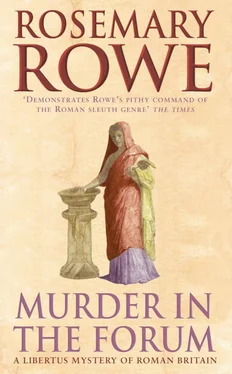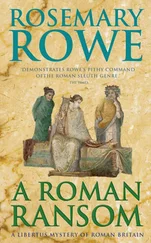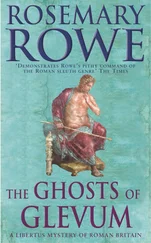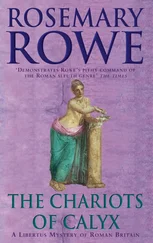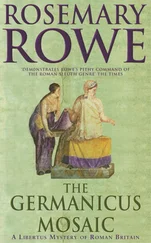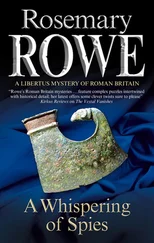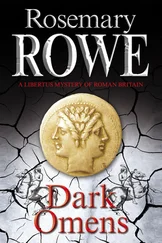Rosemary Rowe - Murder in the Forum
Здесь есть возможность читать онлайн «Rosemary Rowe - Murder in the Forum» весь текст электронной книги совершенно бесплатно (целиком полную версию без сокращений). В некоторых случаях можно слушать аудио, скачать через торрент в формате fb2 и присутствует краткое содержание. Год выпуска: 2001, ISBN: 2001, Издательство: Headline, Жанр: Исторический детектив, на английском языке. Описание произведения, (предисловие) а так же отзывы посетителей доступны на портале библиотеки ЛибКат.
- Название:Murder in the Forum
- Автор:
- Издательство:Headline
- Жанр:
- Год:2001
- ISBN:9781472205070
- Рейтинг книги:3 / 5. Голосов: 1
-
Избранное:Добавить в избранное
- Отзывы:
-
Ваша оценка:
- 60
- 1
- 2
- 3
- 4
- 5
Murder in the Forum: краткое содержание, описание и аннотация
Предлагаем к чтению аннотацию, описание, краткое содержание или предисловие (зависит от того, что написал сам автор книги «Murder in the Forum»). Если вы не нашли необходимую информацию о книге — напишите в комментариях, мы постараемся отыскать её.
Murder in the Forum — читать онлайн бесплатно полную книгу (весь текст) целиком
Ниже представлен текст книги, разбитый по страницам. Система сохранения места последней прочитанной страницы, позволяет с удобством читать онлайн бесплатно книгу «Murder in the Forum», без необходимости каждый раз заново искать на чём Вы остановились. Поставьте закладку, и сможете в любой момент перейти на страницу, на которой закончили чтение.
Интервал:
Закладка:
It was, of course, impossible to communicate with Marcus, or to hear any part of what was being said at his table. Not that there seemed to be much to overhear. Marcus was clearly still startled and affronted after his outburst earlier, and was listening with exaggerated interest to the aged magistrate on his right. Since this was Gaius Flavius, the dispossessed owner of the house we were dining in, I lost interest. I guessed that Marcus was enduring a prolonged lamentation on the topic of dogs and how they had been banished from the dining room.
After a while, Felix turned away with a dismissive gesture, and began a muted discussion with the supposed Egobarbus, who did not seem particularly delighted at the attention. In fact he was looking decidedly ill at ease, shifting awkwardly on the couch and looking doubtfully at the Latin delicacies placed before him.
I looked again at Egobarbus and wondered idly who his barber was. I had once had a moustache like that — though not half so luxurious — so I knew how much it cost in wax and constant trimming to keep it in that flamboyant state. Egobarbus seemed aware of it. He kept dabbing his moustache nervously with his napkin, and glancing doubtfully at Felix. I wondered if Felix was propositioning him .
However, there was nothing to be learned at this distance, and I turned my attention to the meal. It was more than welcome after a long day spent jolting in carriages, with only bread, apples and honeyed dates to sustain me. The food, even such of it as reached the stool-sitters, was excellent — ducks’ eggs and partridge breast, stuffed pork and lovage — while the gilded birds, roast stuffed piglets and exotic cakes which were carried to the main tables were triumphant proof of what the finest cooks in Glevum could produce, without warning, in a day. As Marcus had told me, each magistrate had contributed some delicacy from his own kitchen.
Even so Felix seemed dissatisfied. He spurned the pork, the hare, the swans, and merely picked discontentedly at the more expensive imported delicacies, like olives, dormice and rabbit, though these dishes he mostly commandeered for himself. Gaius was looking grieved — doubtless these costly luxuries had been appropriated from his larder.
Personally, I made a splendid meal, unspoiled by fermented fish entrails since — being at the lowliest table — I could refuse that revolting Roman sauce with impunity. Marcus, from what I could see of him, also ate heartily.
From time to time, as usual on these occasions, the courses were interspersed with speeches as we rinsed our fingers in the bowls of water brought by the slaves. Then after the honeyed apricots and pepper — which were delicious — a local poet rose to his feet and recited, at excruciating length, an ode of welcome which he had written in Felix’s honour — a piece of such unutterable banality that one felt the author must have expended more time in the final performance than he ever spent on the composition.
At last, however, he paused to draw breath, and the rest of his recitation was instantly drowned out by such sustained and deafening applause that he finally withdrew — no doubt holding a very good opinion of himself and his talents. The way was thus opened for the other entertainments and the wine, which the servants were already pouring through filters and mixing with water ready to serve into drinking cups. I caught the eye of the sallow young man opposite, and we exchanged grins of sympathy.
More than sympathy, when I came to look at him closely. It was nearer empathy. The boy looked as out of place here as I was, his hair thinning prematurely, his hands as work-roughened as my own and his toga no better quality than mine, either. And yet he was clearly a proper Roman, not just a Roman citizen, but a man from Rome: not only was his face unfamiliar, but when he spoke to the servants he used the clipped accents and stilted Latin characteristic of the Imperial City.
His name was Silvanus Flavius Octavius, he told me, and he was a tile-maker. That explained the toga — in Rome, tradesmen are often citizens, since any freeman born within the city walls has automatic right to that coveted status. But what had brought him here?
He seemed alarmed by the question, and the sallow face flushed. ‘Oh, business, business,’ he said vaguely. ‘Making contact with your tile factory in Glevum.’ He turned the conversation to mosaics, in which he had — or feigned — a professional interest.
Visiting the local factory? That was of course possible; Glevum is famous for its tiles. I was asking myself with some interest what, in that case, he was doing at Felix’s banquet, when there was a sudden unscheduled change in proceedings, and I forgot my curiosity for a while.
There was a stir at the top table and Marcus rose to his feet. That was unexpected but not unprecedented. Rhetoric is highly prized among Romans, and an impromptu speech by some would-be orator is a possible hazard at any official function. But I had never seen Marcus do it.
He held up his hand for silence, and the diners — who had been looking forward, finally, to the appearance of the musicians and dancing girls — unwillingly settled back to listen.
Marcus was brief. ‘Citizens, welcome on this auspicious occasion. I will not keep you long.’ (Muted cheers and a little laughter.) ‘I speak only to tell you that tonight there is a double cause for celebration. Not only is Perennis Felix with us, but my business in Corinium is finally completed.’ (A little puzzled laughter.) ‘Yes, gentlemen, I recently concluded a contract with Julia Delicta, in due form before a magistrate, and I am delighted to report that I am now a married man.’
At this there was such an outburst of cheering that — like the poet — he was for a moment unable to continue. Only two men present did not join the applause. One was Perennis Felix, whose cheeks had turned first scarlet and then white, as though someone had slapped him. The other was the sallow youth.
He stared at me for a moment, then said, as if I might understand, ‘Phyllidia! Then everything is not lost.’
He set down his goblet, and before I could stop him he had bolted from the room. The other diners carefully paid no attention, either to him or to me. Perhaps they thought it beneath their dignity: Octavius and I had already flouted convention by vulgarly discussing trade at the table. More likely they were simply being meticulously polite. It is not uncommon in fashionable circles for a man to desert his couch at dinner, usually to tickle his throat with a feather and thus make room for more. Indeed, in Rome vomitoria are often provided for the purpose. It is not, however, considered well mannered to notice this, and other guests merely go on talking about philosophy until the missing man returns.
Octavius, however, did not return.
I was curious, so curious that I might almost have followed him, but Marcus was looking in my direction. Felix, I noted, had managed to recollect himself and was joining in the enthusiastic tumult occasioned by Marcus’s announcing, as he sat down, that he was sending out for an additional celebratory amphora of wine to be served at every table.
Now it was Felix who rose to speak.
‘Citizens of Glevum,’ he said, speaking the words as if they tasted of bad fish, ‘I thank you for your welcome. I am, I confess, a little disappointed by the news. I had hoped to arrange a match between Marcus Septimus and my own daughter. Indeed, she is at this moment travelling to the Insula Britannia on that very account. However, since my dearest dream is now impossible, I can only ask you to raise your drinking vessels and hope the young man is as happy in his choice as he deserves to be.’
It sounded more threat than congratulation, but the assembled company was very willing to drink, especially at someone else’s expense. Only Marcus did not charge his drinking cup, but raised it in acknowledgement. Felix sat down to scattered applause, and then the entertainment really began. Starting with the acrobat, naturally.
Читать дальшеИнтервал:
Закладка:
Похожие книги на «Murder in the Forum»
Представляем Вашему вниманию похожие книги на «Murder in the Forum» списком для выбора. Мы отобрали схожую по названию и смыслу литературу в надежде предоставить читателям больше вариантов отыскать новые, интересные, ещё непрочитанные произведения.
Обсуждение, отзывы о книге «Murder in the Forum» и просто собственные мнения читателей. Оставьте ваши комментарии, напишите, что Вы думаете о произведении, его смысле или главных героях. Укажите что конкретно понравилось, а что нет, и почему Вы так считаете.
